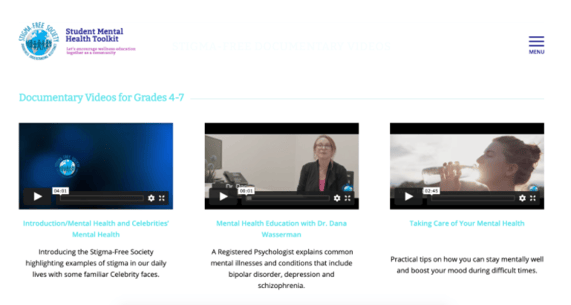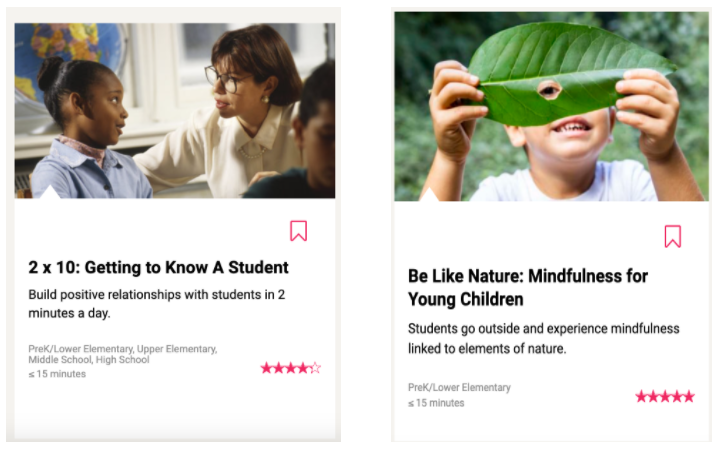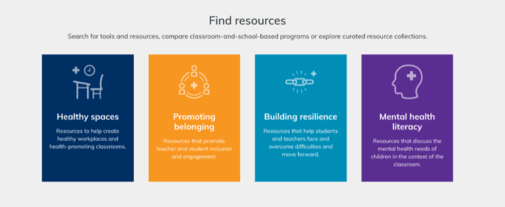5 Age-Appropriate Mental Health and Wellness Resources for Youth
by Deborah Deacon on 12 Jul, 2021
Mental health awareness has made great strides over the past few years. Campaigns like Bell’s Let’s Talk or the Canadian Mental Health Association’s (CMHA) annual mental health week have raised millions in mental health funding and have made a great impact on reducing the stigma surrounding mental health. However, when it comes to access to services, there is a lot of room for improvement. In the United States, most mental health providers tend to be concentrated in urban areas, and many apps and technology solutions are not backed by real evidence in clinical outcomes. Canada shares similar struggles. In fact, 85% of Canadians say mental health services are the most underfunded in the healthcare system, as the country only dedicates <8% of its healthcare budget to mental health.
Evidently, there is still a long way to go in terms of supporting mental health. This is especially true for youth. In Ontario, 5 of 6 kids experiencing some sort of mental health problem will not receive the treatment they need.
Educators can play a significant role in addressing this gap. Beyond establishing certain practices to support student mental health in the classroom, they can integrate relevant and helpful resources into their class curriculum. So, the question remains: how does someone go about finding age-appropriate mental health and wellness resources for youth? Here are a few places to start your search:
1. Stigma-Free Society: Student Mental Health Toolkits for Youth (grades 4-7) and Teens (grades 8-12)
The Stigma-Free Society offers an extensive mental health toolkit for students, with specific content for teachers, school counsellors, and parents, guardians, and caregivers. Their platform contains many important tools:
- Documentary-style videos about mental health and the elimination of stigma in both short and long feature lengths
- Lesson plans and downloadable resources for the separate age groups
- A step-by-step guide for educators on how to use their platform
- Material containing Stigma-Free activities
- Information about the presenters in their videos
Coming soon: Stigma-Free Society Modules on the ChatterHigh platform. These modules will guide your students through all the great tools and resources that Stigma-Free Society offers. For more information, get in touch with us here.

2. Mentalhealthliteracy.org: An Evidence-based, Classroom-ready Mental Health Curriculum
As students are in critical social and emotional development stages, it is crucial that they are well versed in mental health topics and language. This is where mentalhealthliteracy.org comes in; their platform offers a specific curriculum program that is customizable to the needs of educators and students. The program includes lesson plans, in-class activities, handouts, and more.
https://www.youtube.com/watch?v=l7N14HeNro8&t=2s&ab_channel=MHLiteracy
They focus on four key components:
- optimizing/maintaining good mental health
- understanding mental disorders and their treatments
- decreasing stigma
- increasing health-seeking efficacy
For a more detailed look into their curriculum, check out their online guide, available to download. Educators are also able to take a one-day, online or in-person class that will teach them how to apply the platform’s classroom-ready mental health curriculum for students aged 12-19.
3. Greater Good in Education: Science-Based Practices for Positive School Culture
The University of California, Berkeley has developed science-based practices that lead to kinder and more positive school culture. Their practices (which educators can apply to their classroom, professional relationships, and themselves) focus on five key areas:
- Academic instruction
- School relationships
- Personal well-being
- Student well-being
- School challenges
These activities can be viewed by level (from pre-k to adult) and/or duration ( <15 minutes to multiple sessions).
Here are a few examples:

4. Teach Resiliency: Mental Health Online Library and Knowledge Exchange
Teach Resiliency is an online library that provides practical and evidence-based resources to teachers across Canada. Some of their partners include Physical and Health Education Canada (PHE Canada), Centre for Addiction and Mental Health (CAMH), and Western University.
Some tools in their digital library are talking points (e.g. tough conversations, how to talk to kids, teens, and parents, etc.), user-contributed resources, and links to external tools. Additionally, the platform encourages its users to learn from one another as teachers are able to exchange ideas, share resources, and develop new ideas together.
They also have a Teach Resiliency Education Series, which is a series of free and interactive webinars led by experts in the fields of children's and teacher's mental health.

5. ChatterHigh’s Mindful Modules: Gamified Mental Health learning for grades 6-12
As greater attention is paid to mental health education in countries like Canada and the United States, it is important to continue raising awareness about all of these amazing resources available to students and teachers. That’s exactly what ChatterHigh’s Mindful Modules are for. These free, research-proven learning activities guide students through leading mental health resources in a gamified quiz, keeping them engaged with points, prizes, badges, and competitions.
Every fall, we launch a new set of national mental health modules, covering topics like:
- Mental Health and Wellness
- Mental Health Disorders & Eliminating Stigma
- Substance Use Awareness
- Resources and Support
When it comes to mental health, there’s an overwhelming amount of information and resources out there. Our modules offer students a fun, guided tour of leading mental health organizations in the country, and all the information, tools, and services they offer.

Plus, we are launching additional modules for each province, to help students explore resources just for their province! Ontario, New Brunswick, Newfoundland and Labrador, and British Columbia all have customized modules… and the rest are on their way, so stay tuned!
Want to learn more about the Mindful Modules? Book a demo!
